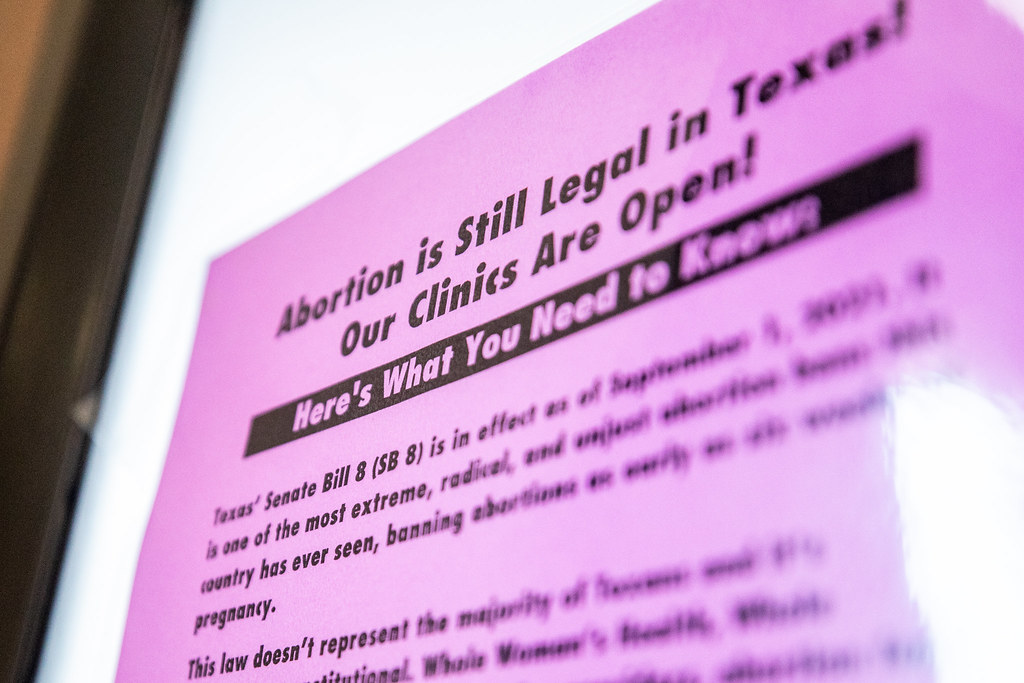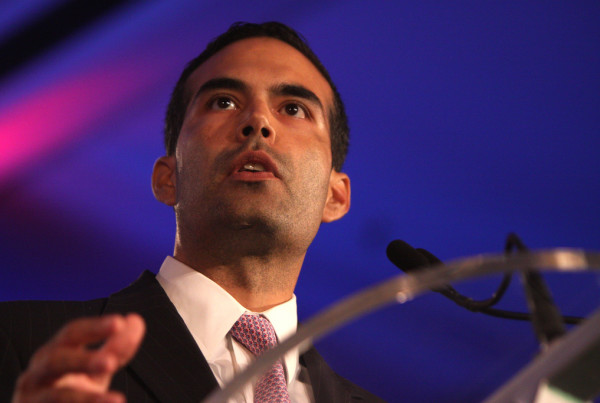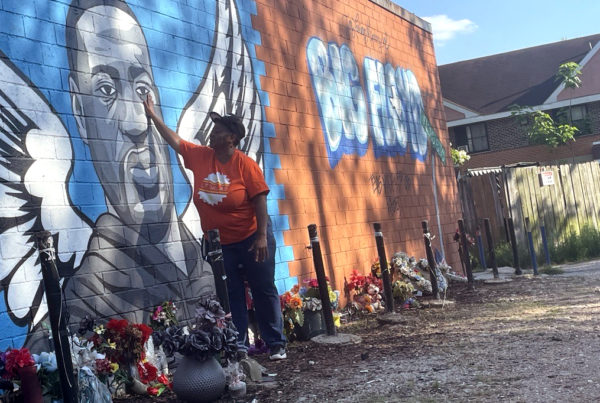The U.S. Supreme Court is considering whether to cut back or overturn the precedent case of Roe v. Wade. The arguments before the court on Wednesday will be focused on a Mississippi law that bans abortions after 15 weeks.
Law professor Joanna Grossman tells Texas Standard she’ll be watching the hearing, in particular, for any possible indications about how conservative justices who have not yet taken a stand on abortion might vote.
And law professor Elizabeth Sepper says the outcome of this case has the potential to unleash a wave of new abortion restrictions across the country.
“I don’t think there’s a way that the Supreme Court can uphold the Mississippi law without overturning what remains of Roe v. Wade,” Sepper said.
Joanna Grossman is Ellen K. Solender Endowed Chair in Women and the Law at Southern Methodist University in Dallas. Elizabeth Sepper specializes in religious liberty, health law, and equality at the University of Texas at Austin. They joined Texas Standard to talk about their expectations for Wednesday’s hearing. For more analysis, listen to the interview in the audio player above or read the transcript below.
This transcript has been edited lightly for clarity.
Texas Standard: Prof. Sepper, let’s begin with you: What do you see as the fundamental question being asked in the case over this Mississippi law that the Supreme Court justices are going to be considering tomorrow in oral arguments?
Prof. Sepper: The Supreme Court is being asked to reconsider and to overrule the basic holding in Roe v. Wade. Roe v. Wade has been cut back over the past 50 or so years. But the basic rule remains in effect that states can’t ban abortion prior to fetal viability. And the Mississippi law at 15 weeks is clearly pre-viability. So the state of Mississippi is asking the Supreme Court to overrule Roe v. Wade.
You use that word “viability.” We should put a pin in that and come back to it if we can. But I want to bring you in here, Prof. Grossman: What do you expect from tomorrow’s oral arguments? What are you going to be listening for and paying most attention to?
Prof. Grossman: I’m going to be listening for where the middle three [justices] are going to come down. And there are no, there aren’t any true centrists on the court; it’s a 6-3 conservative majority. But three of those nine have made clear that they intend to vote to overturn Roe v. Wade in past cases or other contexts. So what we’re going to be looking for and listening for is the three who are probably also opposed to abortion – are they willing to go as far as Mississippi is asking? And that is to overturn not just Roe, but 50 years of abortion precedents that are built on Roe.
When the Casey abortion case was decided in 1992, there was a lot of concern that that would essentially overturn Roe v. Wade. It didn’t. So, is it possible to uphold the Mississippi law and appear not to be overturning Roe v. Wade, even though you clearly have to roll back some of Roe’s holdings?
Sepper: I don’t think there’s a way that the Supreme Court can uphold the Mississippi law without overturning what remains of Roe v. Wade. Roe v. Wade stands for the rule that states can’t ban abortion prior to viability, and to uphold the Mississippi law would be to reject that rule. The Supreme Court might not say the words, “We overturn Roe v. Wade,” but that’s effectively what it will have done.
What about the idea of viability that we were talking about? What is that currently, and is it possible that that line might be just moved or that the court will say that viability should not be our standard, but that we we’re going to leave what that standard is for another day and just uphold the Mississippi law?
Grossman: Well, viability, first of all, is the concept of when a fetus could live outside the mother’s womb, whether they require medical intervention or not. The viability line is a function of technology and also what hospital a baby is born in. It’s not going to be the same everywhere. So we think about in the United States right now, viability being around 24 weeks. And obviously, the 15 weeks [rule] is, you know, nine weeks before that. So, could the Supreme Court eliminate viability and yet retain the right of abortion? I don’t think so, because there’s nothing else to replace it with.
I mean, there’s a conceptual meaning to the idea of viability, which is that until that point, the fetus is just very much a part of the woman’s body, that cannot be understood to be independent in any way. In fact, it could not survive without her. So if you get rid of viability, there isn’t an obvious replacement. So I think, in effect, if they abandon viability, they will be abandoning the core right of Roe, whether they say that in this opinion or not, as Prof. Sepper pointed out.
How does all this intertwine with the court’s consideration of the Texas abortion law, SB 8, which we talked about a little bit earlier? How do you see the interaction between the Texas law and the decision that the court has to make there, and tomorrow’s a case?
Sepper: The Texas law involves, of course, the substantive question: Can you ban abortion prior to viability? So, if the court here in the Mississippi case says yes, then the process questions that the court is focused on in the decision it still has to issue for SB 8 won’t matter so much for abortion because the state will just ban abortion prior to viability.
I still suspect that what we will see eventually from the court will be a ruling in the SB 8 case on the procedural issue in favor of the abortion providers. But it won’t have to do with abortion and will have to do with the fact that the state of Texas tried to sidestep the federal courts and constitutional rights, and the Supreme Court is probably not going to go along with that.
Grossman: I agree with Prof. Sepper’s general sense of what could happen. But I think one possibility is that the Supreme Court uses the SB 8 rule as a way of making whatever it does in Mississippi seem less extreme. So perhaps the court would find a way to uphold the 15-week ban but strike down the Texas law, which is really a six-week ban, in effect, as a way of sort of suggesting that there is some way other than viability to distinguish between unduly burdensome bans and acceptable bans.
I think, in effect, though, that what that will mean is many states will be able to successfully ban abortion pretty completely. I mean, if you think about [Planned Parenthood v.] Casey, even though you said earlier, while Casey didn’t really overrule Roe, but Casey is what gave us Mississippi with only one abortion clinic. The reason we’re even in this situation is Casey really paved the way for states to curtail abortion in very, very significant ways, and I think these two laws give them a way to keep moving that line back, such that, functionally, many states will be able to get rid of abortion.
Any indication based on how Texas abortion cases were argued that could provide us insight into how things might go tomorrow?
Sepper: I think they involve fundamentally different issues. We had procedural issues, a lot of discussion of standing in the SB 8 cases and how one accesses the court. Tomorrow, we’re going to hear a lot more about the substance of abortion regulation. We’ll talk about Roe, we’ll talk about Casey and we’ll talk about the difference between what Mississippi has done in its 15-week ban and the variety of regulations that states have put into place that got us to the point that many states now have one abortion clinic, as in Mississippi.













